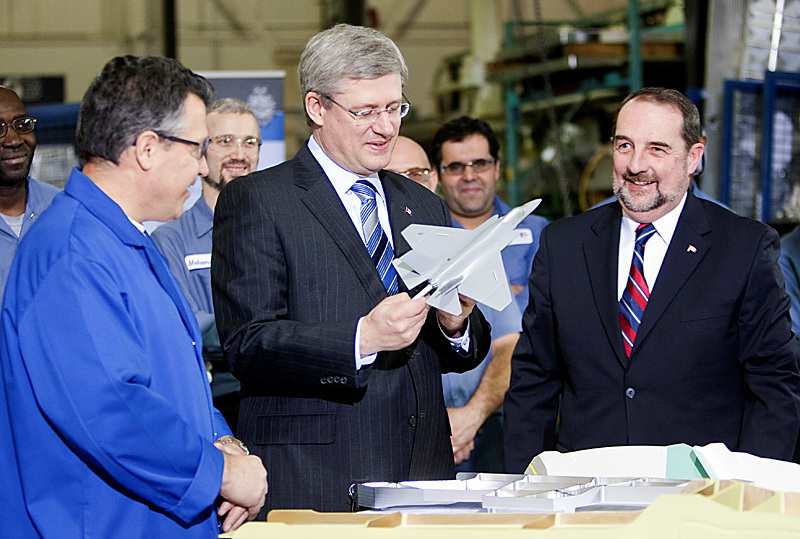Now that MPs are back in Ottawa from their week-long Remembrance Day break and the Prime Minister has returned from telling off Vladimir Putin at the G-20 summit Down Under, might one venture an impolitic question?
Who is responsible for pulling the wool over the Canadian public’s eyes on the F-35, that hugely expensive stealth warplane that Ottawa has been dithering over for the better part of a decade?
Is it the Conservative cabinet, which would dearly love to acquire 65 of these magnificent flying machines, if only it could figure out a way to sneak the purchase (estimated price: $45 billion over the lifetime of the aircraft) past the auditor general, parliamentary budget officer and the opposition parties? Or is it the Pentagon, which, being under heavy political fire in Washington for cost overruns, is anxious to spread the F-35 risk among as many friendly nations as possible?
Or is it our own generals at the Defence Department in Ottawa and their allies in the aircraft industry (our very own “military-industrial complex”), who may be desperate to nail down the purchase of the snappy new planes before a federal election next year that could produce a new government with ideas of wiser ways to spend $45 billion?
The Harper government keeps insisting a final decision has not been made on new fighter aircraft. But those denials have worn thin. Last week’s column mentioned a leak from a Pentagon briefing to the effect that Canada had asked to accelerate the purchase of its first four F-35s, with a letter of intent to be sent to Washington this month and a purchase order placed by next March.
This information was contained on slide 11 of a 14-slide, high-level briefing by Lieutenant-General Christopher Bogdan, the F-35 program executive officer, to Deborah Lee James, secretary of the U.S. Air Force. The Pentagon subsequently confirmed the accuracy of the leak.
These four early-production aircraft, to be used for pilot training, would cost an anticipated $640 million. More than that, they would effectively commit Ottawa replacing the aging CF-18s with F-35s. (Who in his right mind would spend $640 million to train pilots on planes they were never going to be asked to fly?)
Stephen Harper was Auckland on an official visit to New Zealand when reporters caught up to his entourage last week. Officials travelling with him insisted Canada will not be buying those four F-35s and said no decision will be made on which warplane to purchase until firm details on cost and capabilities are received from Lockheed Martin, the U.S. manufacturer.
Who to believe? Assuming the officials with Harper were being truthful, is it possible that the U.S. general briefing the secretary of the air force deliberately misled her with a view to shoring up political support for the troubled program? Alternatively, is it possible that a senior person in the Canadian military or even in the cabinet slipped some erroneous (or premature) information to the Pentagon in the hope of backing the Harper government into a purchase commitment?
Last week, there was another leak, this time to the Ottawa Citizen. Ever since 2006, the Harper government has been a participant in a nine-nation partnership that helps finance the development of the F-35. The way it works, each country kicks in some money every year; in return, manufacturers in that country get a chance to bid on contracts to supply components for the F-35.
This year, Ottawa was asked to contribute $22.5 million. The defence department refused to pay and passed the bill to the RCAF, which pleaded poverty. When the dust settled, the department found the cash, gave it to the RCAF and told the air force to pay the bill.
This annual tithing exercise is part of the 2006 partnership agreement; it commits Canada to investing $551 million over 40 years. The next payment falls due on May 1. And no decision has been made? Really?
Cambridge resident Geoffrey Stevens, an author and former Ottawa columnist and managing editor of the Globe and Mail, teaches political science at Wilfrid Laurier University and the University of Guelph. His column appears Mondays in Waterloo regional Record and Guelph Mercury. He welcomes comments at [email protected]
Image: Flickr/Photoswebpm




